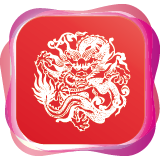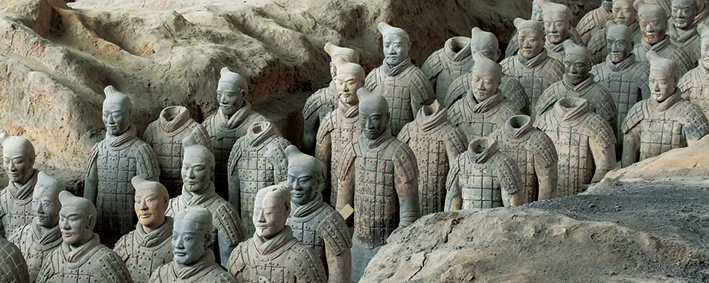 |
CCCH9019 China: Culture, State and Society
|
Course Description
Emperorship was the core institution of Chinese government for over 2000 years (221 BC-1911 AD). The emperor, the Son of Heaven, embodied both the unity of the empire and the unity between Heaven and Man. This enduring institution originated from ancient Chinese civilization and was only abolished after confrontation with global modernization. Emperors, therefore, provide a key to understanding the structures of society and government, disputes in philosophy and religion, patterns of history, and transformations in culture and civilization. They also tell us about China’s struggles in global modernity and are still used in constructing Chinese identity and culture today.
This course studies emperorship as the defining institution of Chinese civilization. It shows how the emperor has repeatedly been perceived as an “essence” of Chinese civilization, and how this enduring institution has been continuously contested and transformed by shifting political, social, cultural, and global forces. This interdisciplinary course teaches students to distinguish divergent disciplinary methodologies, including history, philosophy, religion, literature, and film. It also requires students to critically assess the sources and arguments of existing scholarship.

Course Learning Outcomes
On completing the course, students will be able to:
- Demonstrate enhanced critical thinking.
- Recognize the continuity and transformation of Chinese culture and politics.
- Distinguish various disciplinary methodologies and multiple perspectives involved in the study of the Chinese emperorship.
- Critically assess diverse historical sources, and literary and multimedia representations.
- Question common assumptions about Chinese culture and civilization.
- Understand the contested nature of history writing.
Offer Semester and Day of Teaching
Course will be offered twice:
Section 1 – Second semester (Wed); Section 2 – Second semester (Wed)
Study Load
| Activities | Number of hours |
| Lectures | 24 |
| Tutorials | 12 |
| Reading / Self-study | 48 |
| Film viewing | 18 |
| Assessment: Essay / Report writing | 16 |
| Assessment: Presentation (incl preparation) | 6 |
| Assessment: In-class test | 2 |
| Total: | 126 |
Assessment: 100% coursework
| Assessment Tasks | Weighting |
| Weekly study questions | 20 |
| Tutorial discussion and debates | 20 |
| Essay | 20 |
| In-class test | 40 |
Required Reading
- Gascoigne, B. (2003). A brief history of the dynasties of China. London: Robinson.
- Paludan, A. (1998). Chronicle of the Chinese emperors: The reign-by-reign record of the rulers of imperial China. London: Thames and Hudson.
- Rawski, E. S. (1998). The last emperors: A social history of Qing imperial institutions. Berkeley: University of California Press.
Required Film Viewing
- Twente, C. (Director). (1987). The last emperor.
- FilmRoos. (Producer). (2008). In search of history: China’s Forbidden City.
- Bertolucci, B. (Director). (2006). Secrets of China’s first emperor: Tyrant and visionary.
Recommended Reading
- Cotterell, A. (2008). Sons of Heaven: Famous Chinese emperors in history [Tian Zi : Zhongguo Li Shi Shang Zui Zhu Ming De Huang Di]. Beijing: Wu zhou chuan bo chu ban she.
- Ebrey, P. B. (1996). The Cambridge illustrated history of China. Cambridge: Cambridge University Press.
- Fairbank, J. K. (2006). In M. Goldman (Ed.), China: A new history (2nd enl. ed.). Cambridge, MA: Belknap Press of Harvard University Press.
- Holdsworth, M., & Courtauld, C. (Eds.). (2008). Forbidden City: The great within (Rev. ed.). London: Frances Lincoln Ltd.
- Huang, R. (1997). China: A Macro history (Turn of the century ed.). Armonk, N.Y.: M.E. Sharpe.
- Wright, D. C. (2001). The history of China. Westport, CT: Greenwood Press.
Recommended Film Viewing
- Zhou, X. (Director). (1996). The emperor’s shadow.
- Wu Zetian (2006).
- Yan, D. (Director). (2000). Yongzheng wang chao.
Course Co-ordinator and Teacher(s)
| Course Co-ordinator | Contact |
| Dr D.M. Pomfret School of Humanities (History), Faculty of Arts |
Tel: 3917 2865 Email: pomfretd@hku.hk |
| Teacher(s) | Contact |
| Dr A. Wang School of Chinese, Faculty of Arts |
Tel: 3917 7924 Email: awang@hku.hk |

